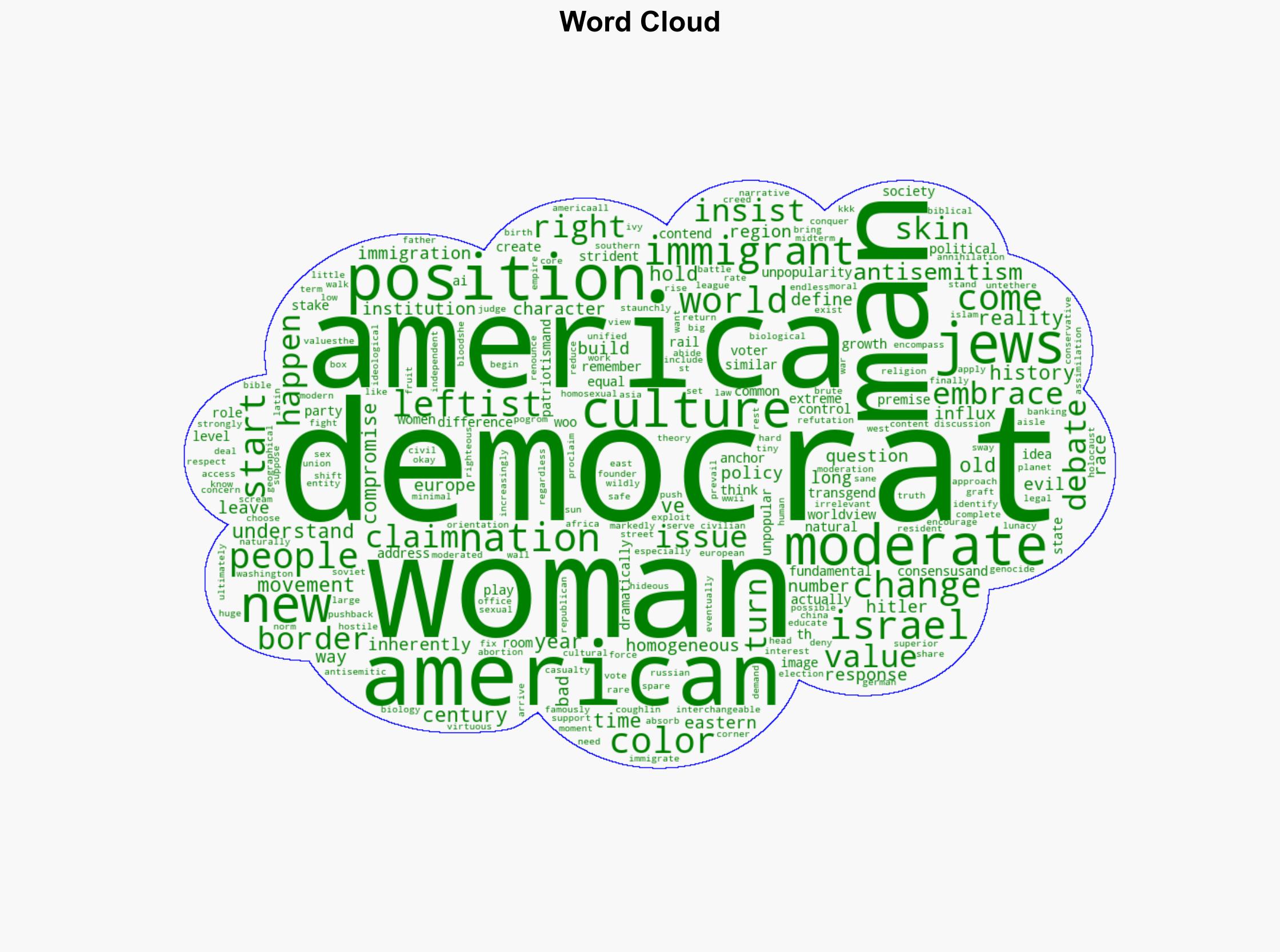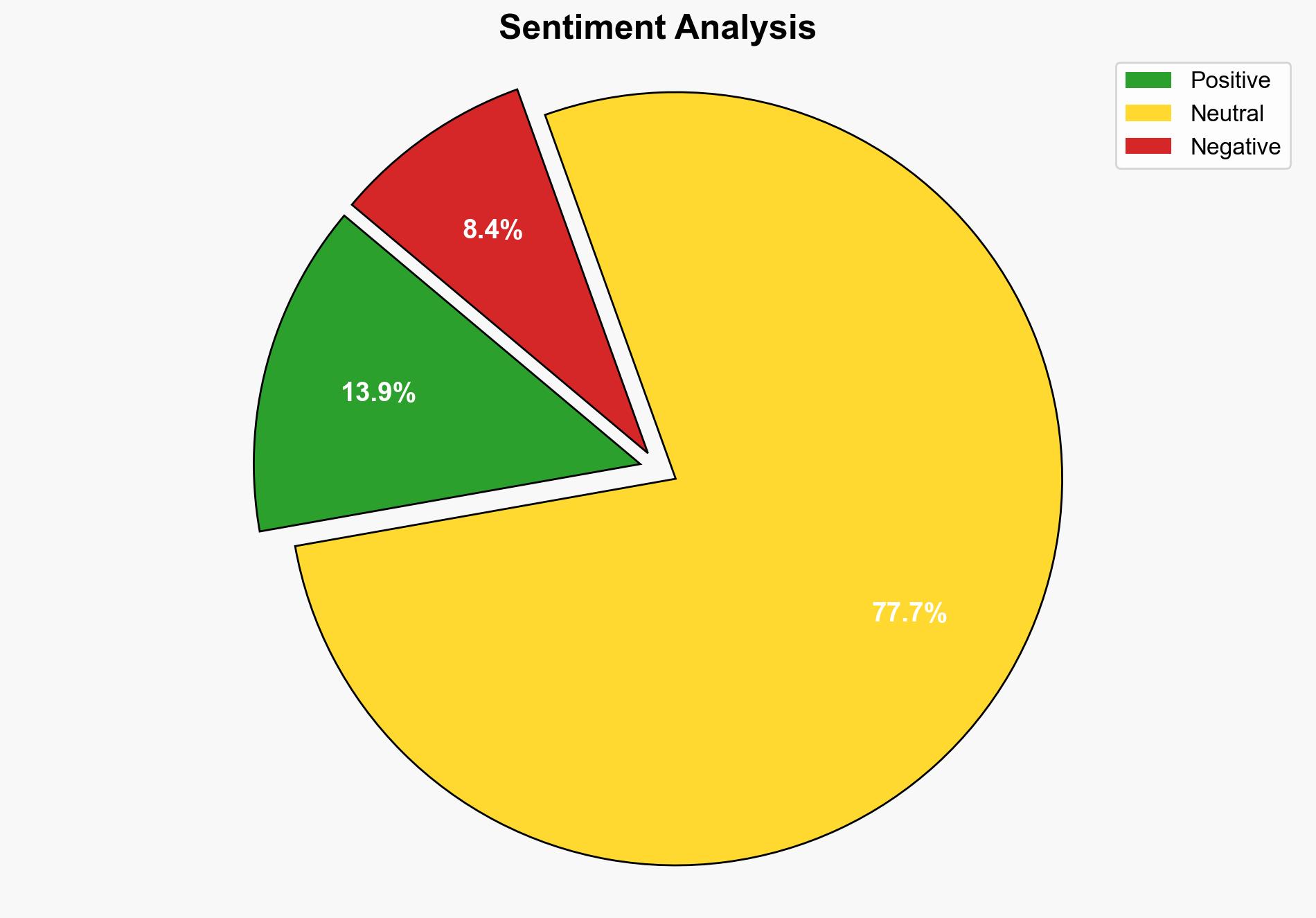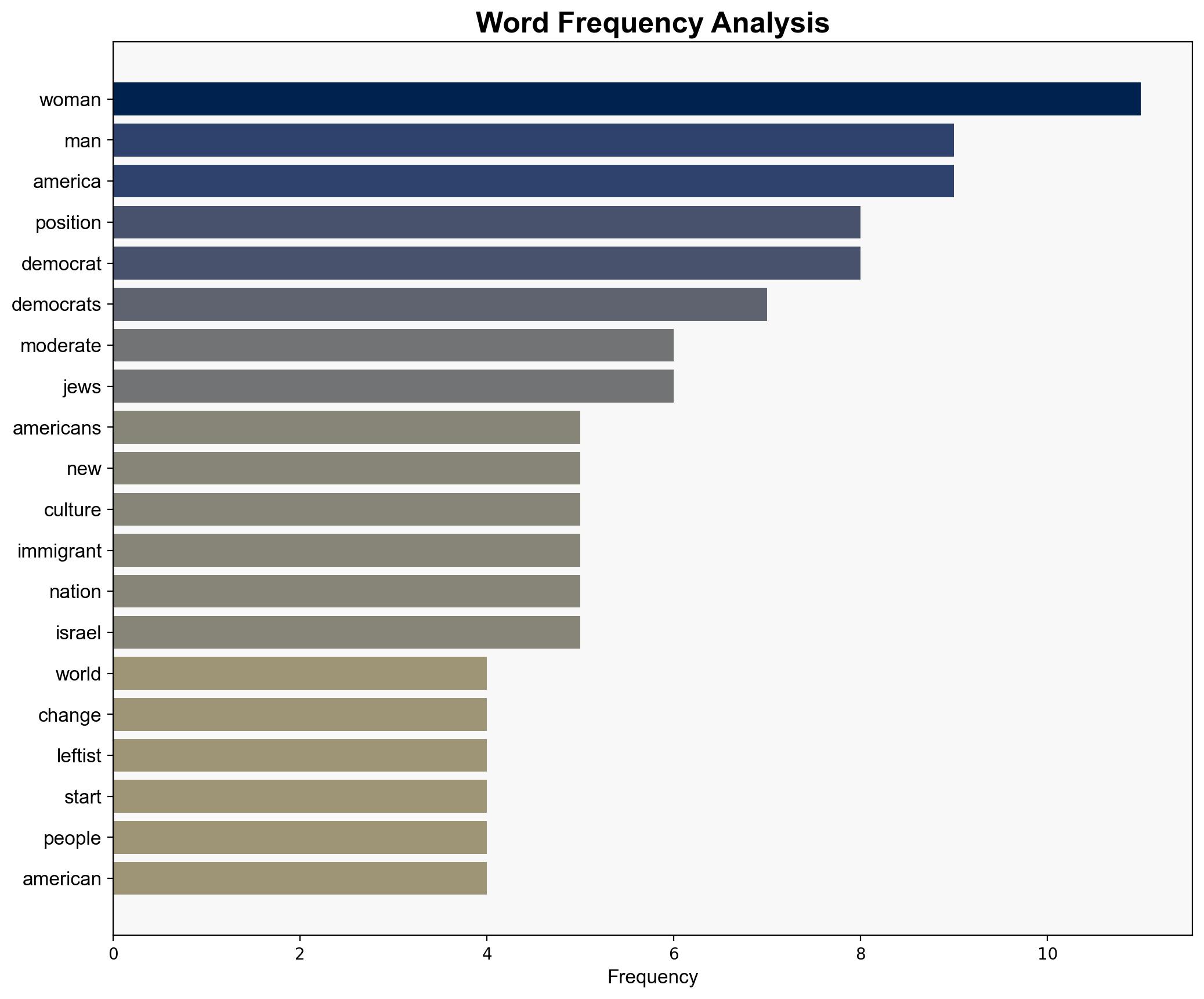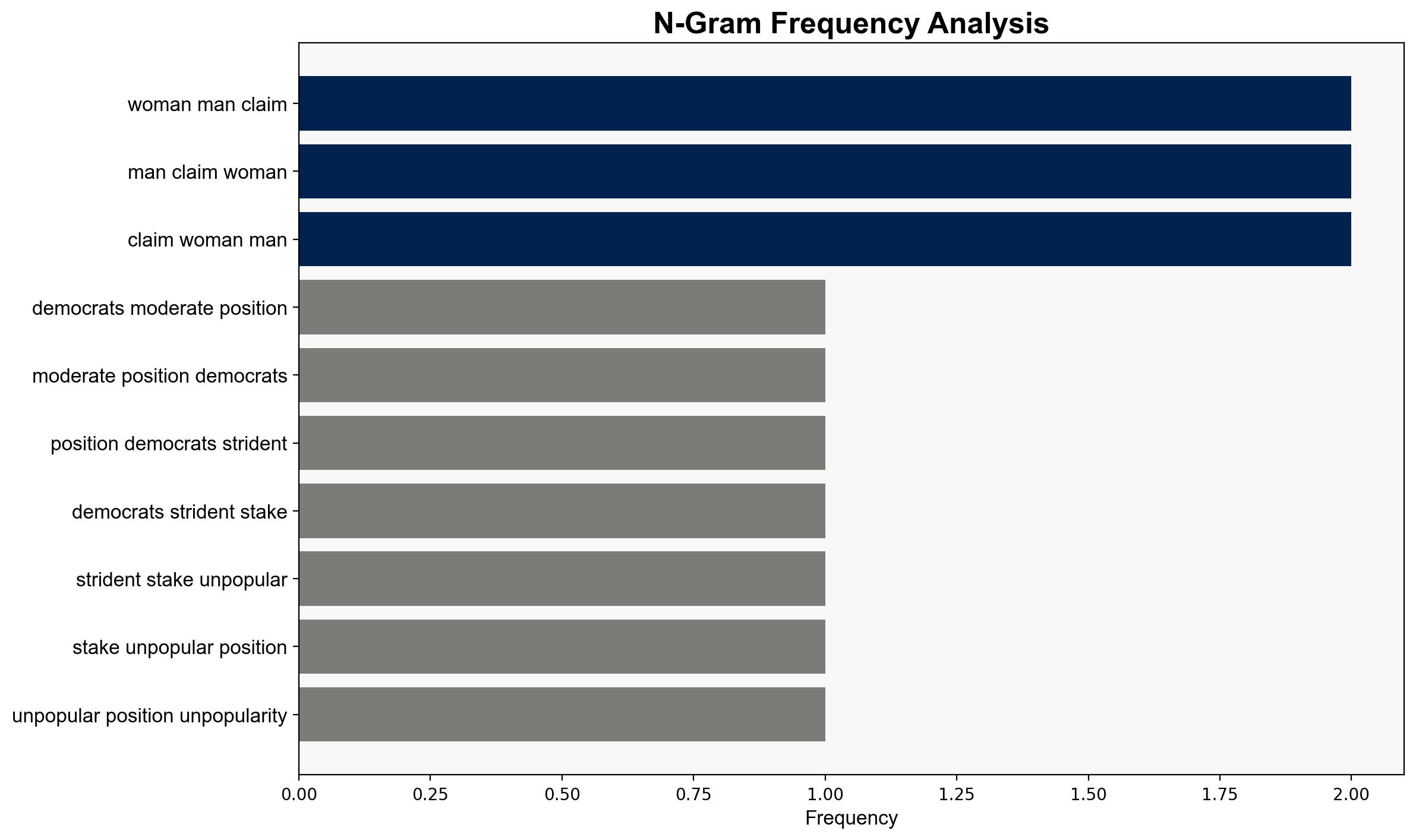Why arent Democrats moderating their positions – Americanthinker.com
Published on: 2025-10-15
Intelligence Report: Why aren’t Democrats moderating their positions – Americanthinker.com
1. BLUF (Bottom Line Up Front)
The analysis suggests that the Democratic Party’s perceived lack of moderation is driven by ideological shifts and strategic positioning rather than mere extremism. The most supported hypothesis is that Democrats are responding to demographic and cultural changes in the electorate, which necessitates a redefinition of traditional positions. Confidence in this hypothesis is moderate, given the complexity of political dynamics and potential biases in the source. Recommended action includes monitoring demographic trends and political discourse to anticipate shifts in policy and strategy.
2. Competing Hypotheses
1. **Demographic and Cultural Adaptation Hypothesis**: Democrats are not moderating their positions because they are adapting to demographic changes and cultural shifts within the U.S., which require new policy stances to maintain electoral competitiveness.
2. **Ideological Entrenchment Hypothesis**: Democrats are becoming more ideologically entrenched, driven by a core belief system that prioritizes progressive values over broader appeal, potentially alienating moderate voters.
Using ACH 2.0, the Demographic and Cultural Adaptation Hypothesis is better supported by evidence of changing voter demographics and cultural attitudes, whereas the Ideological Entrenchment Hypothesis lacks comprehensive support due to insufficient evidence of widespread alienation among moderates.
3. Key Assumptions and Red Flags
– **Assumptions**: The analysis assumes that voter demographics and cultural attitudes significantly influence party platforms. It also assumes that the Democratic Party’s strategy is primarily electorally driven.
– **Red Flags**: Potential bias in the source, which may overemphasize ideological extremism. Lack of direct evidence linking voter behavior changes to specific policy positions.
– **Blind Spots**: The analysis may overlook internal party dynamics and external influences such as media portrayal and lobbying efforts.
4. Implications and Strategic Risks
– **Political Polarization**: Continued polarization may lead to legislative gridlock and hinder bipartisan cooperation.
– **Electoral Volatility**: Shifts in demographic support could lead to unexpected electoral outcomes, impacting policy continuity.
– **Geopolitical Impact**: Domestic political shifts may influence foreign policy stances, affecting international alliances and negotiations.
5. Recommendations and Outlook
- Monitor demographic trends and cultural shifts to anticipate changes in political strategy.
- Engage in dialogue with moderate and independent voters to assess potential shifts in electoral support.
- Scenario-based projections:
- Best: Democrats successfully adapt to demographic changes, maintaining electoral competitiveness.
- Worst: Ideological entrenchment leads to significant electoral losses and increased polarization.
- Most Likely: Gradual adaptation with intermittent electoral successes and challenges.
6. Key Individuals and Entities
No specific individuals are mentioned in the source text. The focus is on the Democratic Party as an entity.
7. Thematic Tags
national security threats, political strategy, demographic shifts, ideological polarization





